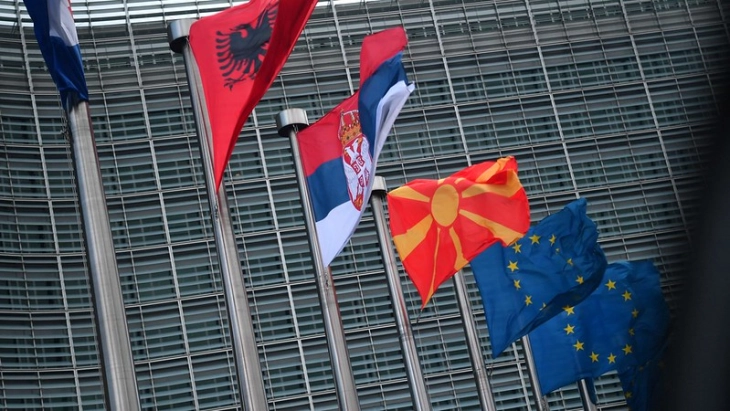EU decisions on dealing with energy crisis include Western Balkans, says EU Ambassador Geer

Kavadarci, 5 October 2022 (MIA) - Any decisions made within the EU, any measures taken to deal with the energy crisis always include the Western Balkan region, because at the moment both the EU and the Western Balkans are facing similar challenges, Head of the EU Delegation in the country, Ambassador David Geer, said Wednesday in response to a reporter’s question about the Union’s support for the Western Balkan countries in dealing with the energy crisis in the context of the new sanctions package against Russia prepared by the EU, which doesn’t include an exemption-derogation for the region due to Belgrade's position towards Moscow.
“As regards EU support in the energy sector, I’d like to underline that the EU provides significant financial support in terms of energy. First and foremost through the so-called green transition in providing renewable energy sources, through installation of photovoltaics in the Oslomej thermal power plant and also in increasing the energy efficiency in public buildings to be able to face the energy crisis. The EU also provides financial support for the gas transition through the interconnectors from the Republic of Greece to the Republic of Serbia and Kosovo, and the financial support in these areas of the EU will certainly continue in the future. Of course, the support is in the medium and long term,” EU Ambassador Geer said.
In terms of electricity supply and facing high electricity prices, the Western Balkans, he added, is also involved in those decisions. And the most important thing to say is that whenever the EU undertakes or holds any meetings, the Western Balkans is always part of those discussions.
“The best proof of this is that your country and other Western Balkan partners are already part of the discussion in the EU, and your country is also part of the EU’s common energy platform and actively contributes to that platform,” said Geer.
In the context of what new sanctions package the EU plans to take in relation to the situation in Ukraine, he says he could not comment on that decision now, adding that once decisions are made in Brussels he will be able to explain them in more detail.
“However, as far as the Republic of North Macedonia is concerned, it has indeed adopted and implemented all the decisions and sanctions the EU has taken against Russia due to the attack on Ukraine, and I learned that the Republic of North Macedonia will continue to function in accordance with those decisions. I would also like to underline that in terms of the implementation of EU sanctions against Russia, North Macedonia really represents an example in this part,” EU Ambassador David Geer said.
Earlier on Wednesday, Radio Free Europe (RFE) reported that the Western Balkans will not be exempt from the European Union’s new package of sanctions against Russia.
“Serbia is not imposing sanctions on Russia, therefore, it should not profit from a derogation. Other member states have agreed with this position,” said a diplomatic source who participated in the talks on the new sanctions package, RFE reports.
In the first draft proposal for a new package of sanctions, Western Balkan countries were to be exempt from the limitations on the import of Russian crude oil in order to protect the region’s energy stability.
According to the preliminary idea, the exemption would enable the transit of Russian crude oil through the oil pipelines in Croatia, on condition that such transit remains within the limits of the average levels of transit from the previous years in order to avoid circumvention of sanctions.
However, diplomatic sources say that, following a debate at the level of EU member states’ ambassadors, the derogation provision was removed due to Serbia’s failure to align with EU sanctions against Russia, which are a response to Russia’s aggression on Ukraine.







